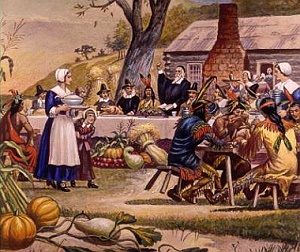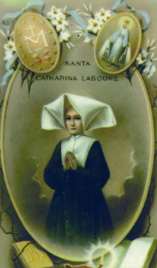We ask you, urgently: don’t scroll past this
Dear readers, Catholic Online was de-platformed by Shopify for our pro-life beliefs. They shut down our Catholic Online, Catholic Online School, Prayer Candles, and Catholic Online Learning Resources—essential faith tools serving over 1.4 million students and millions of families worldwide. Our founders, now in their 70's, just gave their entire life savings to protect this mission. But fewer than 2% of readers donate. If everyone gave just $5, the cost of a coffee, we could rebuild stronger and keep Catholic education free for all. Stand with us in faith. Thank you.Help Now >
A Culture Without Urbanity
FREE Catholic Classes
This deficiency cannot be blamed on the Left or the Right - we are all to blame for letting politics ruin our manners and damage our capacity for friendship. Aristotle would call this situation a reduction of all friendships to that of "mutual use" rather than pleasure or, much less, the pursuit of the same good. Mutual use serves to bolster us in our opinions, corroborate whatever it is we believe is right, justify our hatreds, and insure we never change our minds about anything. Thoughtlessness is the chief characteristic of such society; conversations become regurgitations of the pundits we praise for the purpose of publicly confirming our tribal allegiance. Social occasions have become so boring they usually descend into recalling the most horrific story from the day's Drudge Report, or its equivalent.
Highlights
Catholic Online (https://www.catholic.org)
4/8/2014 (1 decade ago)
Published in U.S.
Keywords: Jack Paar, Judy Garland, talk shows, T.S. Eliot, entertainment culture, crassness, Deal W.Hudsonurbanity, William F Buckley, urbanity, manners, dignity, beauty, Liturgy, culture, enthsuiasm, renewal, reform, respect, Catholic Culture, Deal W. Hudson
WASHINGTON,DC (Catholic Online) - There were nights as a boy I was allowed to stay up late and watch Jack Paar on the Tonight Show which he hosted from 1957-1962. What I re-member most about Paar's style was his warm wit and sly charm but especially his gift for conversation, for creating a rapport and audience with his guests based upon humor, good will, taste, intelligence, and, a word I didn't know at the time, urbanity.
If you aren't old enough, or are too old, to remember Jack Paar take a look at this clip from his famous 1962 interview with Judy Garland. His ability to bring the best out of the fragile and brittle Garland attests to his ability to make anyone comfortable in his presence. (See also this compilation of Paar monologues hosted by Hugh Downs.)
As a high school senior, I started watching William F. Buckley's Firing Line, which started airing in 1966, for similar reasons. Although the conversations were about ideas and politics, Buckley would converse with guests diametrically opposed to his conservatism without the atmosphere being poisoned by rancor - with the exception of Gore Vidal! Buckley's capacity for friendship across ideological lines, such as with John Kenneth Galbraith, was grounded, I believe, in the respect his showed them, while often cutting their arguments to ribbons.
Urbanity is a good word for both Paar and Buckley, because their type of detachment was of the urban kind, shared by men and women who have grown accustomed to living, and making friends, at an intersection where many cultures, classes, and ideologies meet. This is not to say that urbanity cannot be found in the suburbs or on the farm, but the need to engage a diversity of viewpoints, ethnicities, and social classes is a necessity of city life. If urbanity can be called a virtue, then it's the kind of detachment from one's own taste and values that allows respect to be shown to, and relationships to be formed with, virtually anyone.
There's little urbanity in American culture at the present moment - relationships like media, the arts, education, and much entertainment have become politicized, or even worse, made purveyors of ideology. It's liberal vs. conservative, Democrat vs. Republican, pro-abortion vs. anti-abortion, pro-gay marriage vs. anti-gay marriage, pro-immigration vs. anti-immigration, Fox TV fans vs. MSNBC fans, and so forth. Within minutes of conversation with someone met for the first time, those polarities inevitably are mentioned in order to determine just "whose side you are on." If mutual delights were previously mentioned - music, movies, golf - they are promptly forgotten if a divide is revealed. There are exceptions, but they are becoming, to my eye and ear, fewer and fewer.
Whereas in the 80s, conversations took on the appearance of the Phil Donohue show - with its insipid exploration of feeling states - the paradigm of social interaction nowadays is political talk radio. If T. S. Eliot's "Love Song of J. Alfred Prufrock" was re-written the refrain would be, "In the room the women come and go talking of Obama's birth certificate."
This deficiency cannot be blamed on the Left or the Right - we are all to blame for letting politics ruin our manners and damage our capacity for friendship. Aristotle would call this situation a reduction of all friendships to that of "mutual use" rather than pleasure or, much less, the pursuit of the same good. Mutual use serves to bolster us in our opinions, corroborate whatever it is we believe is right, justify our hatreds, and insure we never change our minds about anything.
Thoughtlessness is the chief characteristic of such society; conversations become regurgitations of the pundits we praise for the purpose of publicly confirming our tribal allegiance. Social occasions have become so boring they usually descend into recalling the most horrific story from the day's Drudge Report, or its equivalent. I was saved from such a scene recently when I was introduced to an elderly Texas oil magnate who was marvelously articulate on the subject of Stetson hats, about which we formed an immediate bond.
It occurred to me only recently that one of the reasons I wear plus-fours on the golf course is directly related to the crassness I have described above - there's hardly an occasion when someone comments on my offbeat garb who does not turn out to be interesting as well as affable. My 20's golf dress appeals to those whose fields of vision have not been narrowed to the "headline news" or morning stories on Fox & Friends. Only yesterday I exchanged cards with a Mr. Smith, no kidding, from Greenville, SC with a marvelous smile and a few more years than I on his frame, who I will soon be visiting at his home. I have no idea of his politics or political affiliation - it won't matter.
© Deal W. Hudson, Ph.D
-----
Deal W. Hudson is president of the Morley Institute of Church and Culture, Senior Editor and Movie Critic at Catholic Online, and former publisher and editor of Crisis Magazine.This column and subsequent contributions are an excerpt from a forthcoming book. Dr. Hudson's new radio show, Church and Culture, is heard on the Ave Maria Radio Network.
---
'Help Give every Student and Teacher FREE resources for a world-class Moral Catholic Education'
Copyright 2021 - Distributed by Catholic Online
Join the Movement
When you sign up below, you don't just join an email list - you're joining an entire movement for Free world class Catholic education.
-

-
Mysteries of the Rosary
-
St. Faustina Kowalska
-
Litany of the Blessed Virgin Mary
-
Saint of the Day for Wednesday, Oct 4th, 2023
-
Popular Saints
-
St. Francis of Assisi
-
Bible
-
Female / Women Saints
-
7 Morning Prayers you need to get your day started with God
-
Litany of the Blessed Virgin Mary
Daily Catholic
 Daily Readings for Thursday, November 28, 2024
Daily Readings for Thursday, November 28, 2024 St. Catherine Laboure: Saint of the Day for Thursday, November 28, 2024
St. Catherine Laboure: Saint of the Day for Thursday, November 28, 2024 The Salve Regina (Hail Holy Queen): Prayer of the Day for Thursday, November 28, 2024
The Salve Regina (Hail Holy Queen): Prayer of the Day for Thursday, November 28, 2024- Daily Readings for Wednesday, November 27, 2024
- St. James Intercisus: Saint of the Day for Wednesday, November 27, 2024
- Prayer to Saint Anthony of Padua: Prayer of the Day for Wednesday, November 27, 2024
![]()
Copyright 2024 Catholic Online. All materials contained on this site, whether written, audible or visual are the exclusive property of Catholic Online and are protected under U.S. and International copyright laws, © Copyright 2024 Catholic Online. Any unauthorized use, without prior written consent of Catholic Online is strictly forbidden and prohibited.
Catholic Online is a Project of Your Catholic Voice Foundation, a Not-for-Profit Corporation. Your Catholic Voice Foundation has been granted a recognition of tax exemption under Section 501(c)(3) of the Internal Revenue Code. Federal Tax Identification Number: 81-0596847. Your gift is tax-deductible as allowed by law.








 Daily Readings for Thursday, November 28, 2024
Daily Readings for Thursday, November 28, 2024 St. Catherine Laboure: Saint of the Day for Thursday, November 28, 2024
St. Catherine Laboure: Saint of the Day for Thursday, November 28, 2024 The Salve Regina (Hail Holy Queen): Prayer of the Day for Thursday, November 28, 2024
The Salve Regina (Hail Holy Queen): Prayer of the Day for Thursday, November 28, 2024

